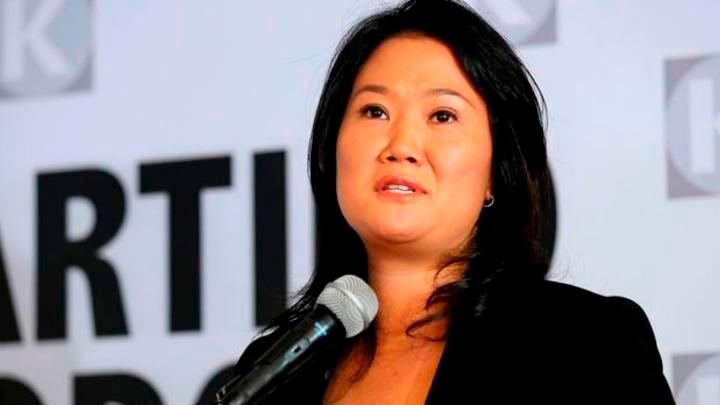RIO DE JANEIRO, BRAZIL – The crusade of Keiko Fujimori (authoritarian right) to annul thousands of votes of the Peruvian presidential elections, whose virtual winner is far-left Pedro Castillo, generated an unusual tension this Friday when the Electoral Jury gave her permission to challenge minutes out of time, a measure that was later retracted.
After most of Fujimori’s appeals to annul votes were not presented on time, Peru’s highest electoral body intended to give her an extraordinary extension, which the leftist Peru Libre party, of which Castillo is a candidate, described as “unconstitutional” and a “threat of a coup”.
“There is a clumsy pretension of wanting to carry out a coup d’état from the National Jury of Elections”, assured in a press conference Dina Boluarte, the vice-presidential candidate of the leftist Castillo.
For his part, lawyer Anibal Quiroga, legal advisor of Peru Libre, warned that, if the deadline was extended, the JNE was “violating the Constitution and the law, creating a tremendous legal insecurity”.
“It is thus playing into the hands of the criminal organization that has participated in these elections (Fujimorism), and that would have no scruples about taking the country to civil war so that its interests and privileges would not be affected,” Quiroga added.
Electoral jury under pressure
A great popular pressure arose after the decision of the JNE was leaked in the national media, whose president, Jorge Luis Salas, has been intimidated for days by Fujimori’s sympathizers who gathered in front of his house to shout “terrorist” at him.
In principle, the four magistrates that form part of the body had proposed to accept all the appeals to annul the electoral records presented by Fujimori (some 800) and by Peru Libre (some 50) until this Friday, after a good part of them were presented after the deadline stipulated by the electoral regulations.
In total, there are around 200,000 votes that Fujimori intended to annul, mostly from Andean and rural areas where Castillo had overwhelming support, after denouncing, without any reliable evidence, an alleged “systematic fraud” on the part of his rival.
Fujimori’s denunciation is opposed to the report issued by the electoral observation mission of the Organization of American States (OAS), which found no serious irregularities in the elections but urged both candidates to await the resolution of all appeals in the hands of the electoral juries.
Meanwhile, the counting of votes is slowly advancing to its end, wherewith 0.328% of the votes still to be counted, Castillo has 50.168% of the preferences against Fujimori’s 49.832%, a narrow margin of 58,490 votes (0.332%) that is already insurmountable for the candidate of the pro-Fujimori Popular Force party.
Criticism for asking for calm
As if this were not enough, the interim president, Francisco Sagasti, admitted having communicated with members of both candidacies to ask them to lower the tension and wait for the results of the recount because “the task of a head of state is to make the country maintain serenity and calm in difficult and complex moments”.
Sagasti trusted Mario Vargas Llosa to deliver his message to Fujimori, which was taken by her as an interference by the current president.
“President Sagasti should not interfere in my legitimate right to defend our votes. He has the constitutional obligation to be impartial and stay out of the electoral process,” said Fujimori, who is facing an indictment of more than 30 years in prison for alleged money laundering.
“The president does not generate calm, quite the contrary. The playing field is not even. Some external actors are violating the popular will. We will continue defending our right vote by vote”, he added.
However, Alvaro Vargas Llosa, Mario’s son, insisted in an interview with the RPP radio station that the conversation between Sagasti and his father had nothing improper or unconstitutional.
“It is perfectly logical that in this climate, any authority inclines to act in dialogue with different characters of the country to put cold cloths,” Vargas Llosa said.
Two-sided protests
At the same time, as has become a daily routine, thousands of supporters of each of the two parties mobilized in Lima, with those of Peru Libre clamoring for Castillo to be declared the winner and those of Fuerza Popular “against communism and fraud”.
In this climate of great tension, the Ministry of Foreign Affairs requested the international community not to comment on the Peruvian elections, considering it “disrespectful to the Peruvian people” for not waiting for the electoral bodies’ official proclamations.
Therefore, it sent protest notes to Argentina, Bolivia, and Nicaragua ambassadors after Argentinean President Alberto Fernandez and Bolivian President Luis Arce, as well as Nicaraguan Vice President Rosario Murillo, congratulated Castillo as the winner of the elections.


